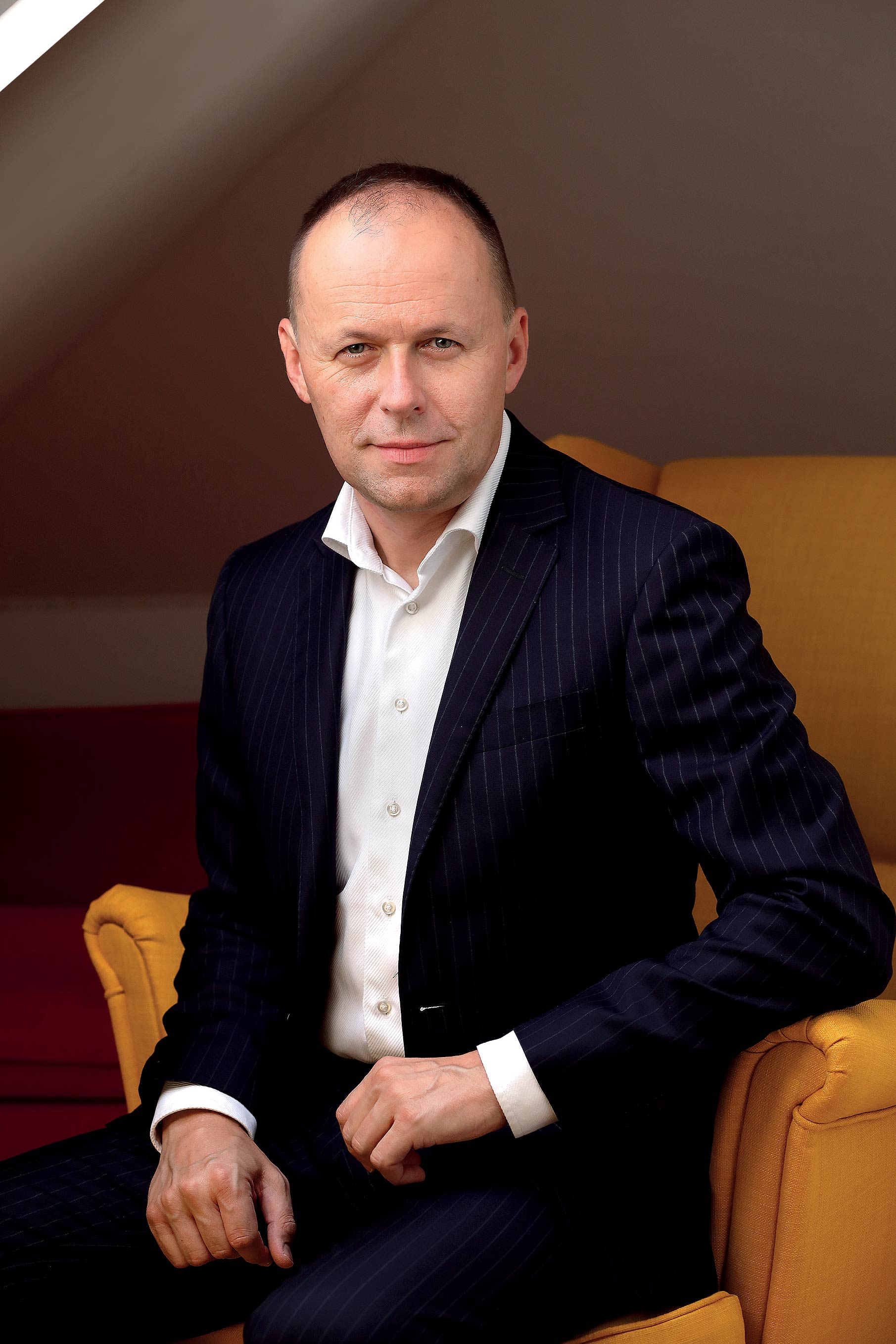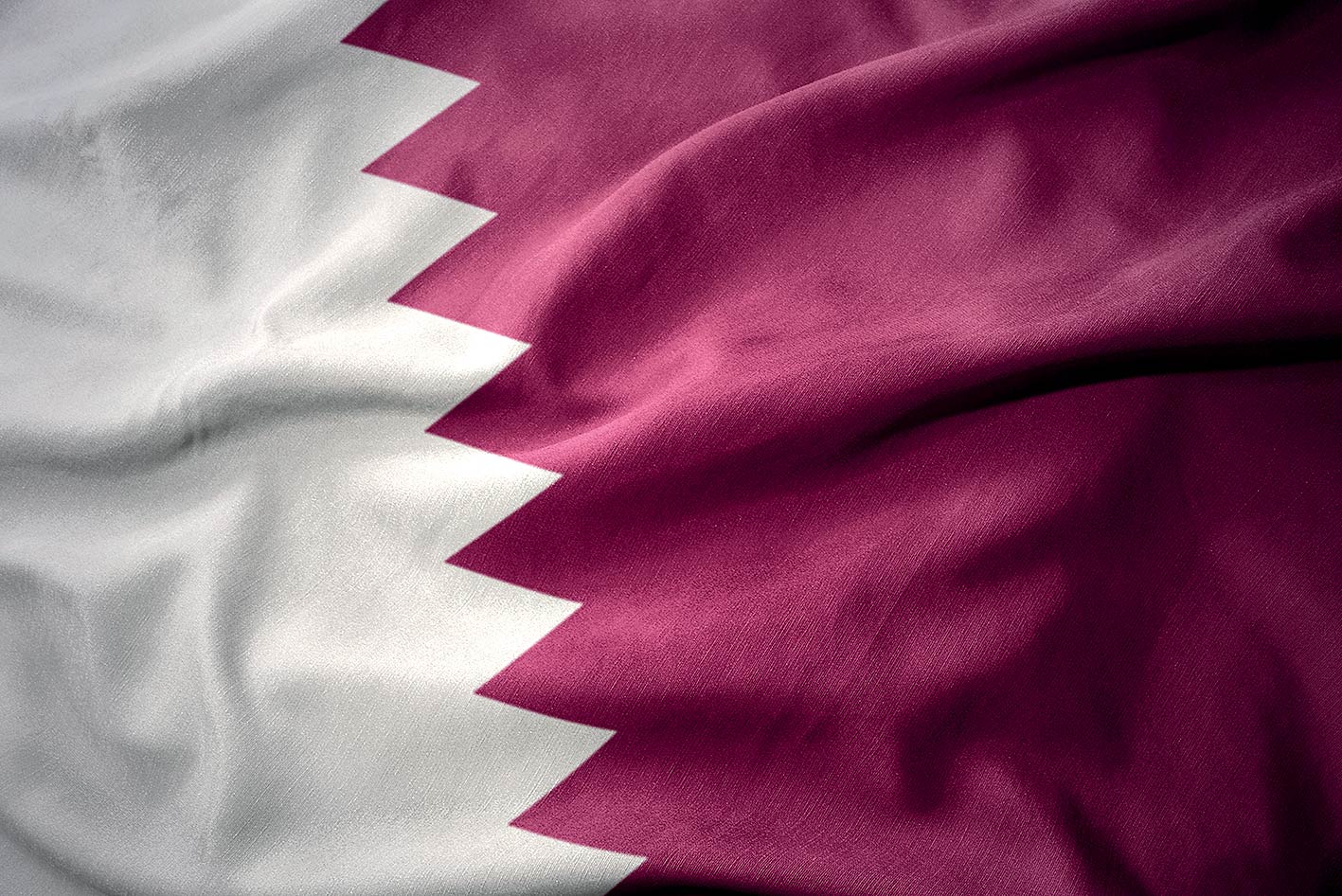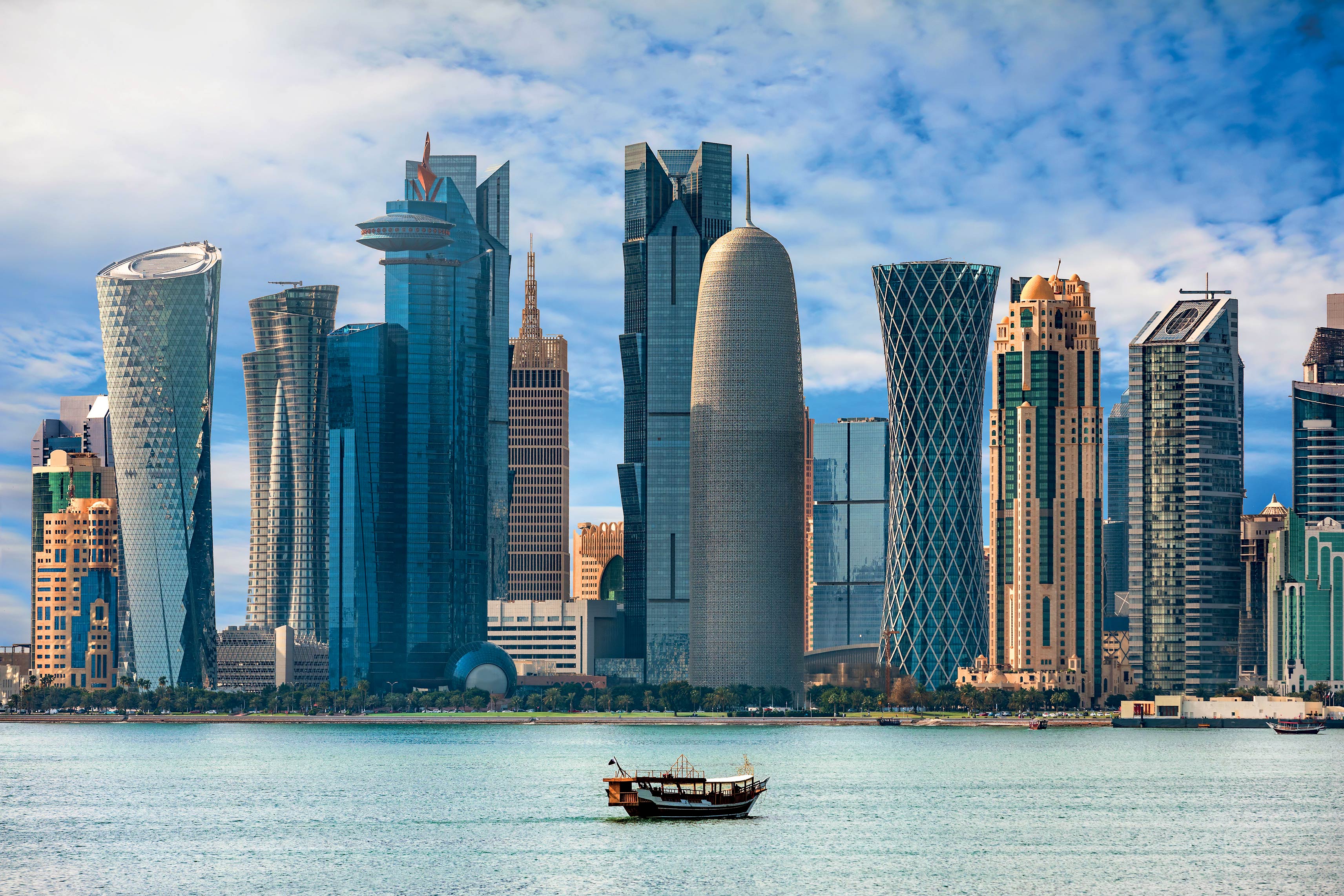There are not a whole lot of countries that are without a doubt one of the most dynamically developing, offer a number of mutual opportunities, and are positively inclined to cooperating with the Czech Republic. One example is the State of Qatar. One person that knows it well is Martin Horák, advisor to the Board of trade for GCC countries, whose work revolves around business and investment opportunities in connection with this country.
How did you come across Qatar anyway?
Coincidence. Travelling is one of my favorite hobbies. And if there is a place that I have been to more than thirty times, it is Dubai. True, it was mostly for leisure. Nevertheless, I still got to know the world there and I was fascinated by how quickly it has been developing and the incredible technological potential they have. Sometime last spring, the Chairman of the Board of trade for GCC countries, Peter Závodský, approached me with an offer to become the Board's advisor on economic and investment matters and safety issues. I have known Peter for some time and I know that he has been involved in the region of the Persian Gulf for many years, has built very strong personal relationships there, and representatives of the region's countries have respect for him and his ways.
What was your first big task?
We invested a lot of effort into the finalization of the first fundamental mutual agreement between Qatar and the Czech Republic – the contract to prevent dual taxation. And now we can start working on phase two – to enhance mutual diplomatic relations by cooperating in trade. We will need to hammer out the comprehensive agreement on investments, but while that is going on, mutual cooperation can be initiated. We are now in the phase of preliminary discussions, we are mapping the terrain so to speak. The Qatari side is saying, “Of course, let us finalize the initial formalities, and then we can start talking specifics.” In order to secure a strong foothold for Qatar in Czechia, we have been following protocol and communicating with representatives of the Czech Republic, be it the Ministry of Foreign Affairs, Ministry of Finance, or Ministry of Interior.
Czechia could benefit from Qatar taking an interest then?
Very much so. Look at some other countries – in Germany, for instance, Qatar invests 45 billion Euros a year, in the UK it is 50 billion. Yes, they have developed economies, but they also have a different approach. The German Government sends nineteen diplomatic parties to visit every year, and they always warrant the participation of at least a ranking Minister or more. And what do we do? We send one party in a year for a visit that lasts a couple of hours... While Qatar, the richest country in the world, is very willing to invest enticing sums into foreign economies. And they are really serious about us. Of course, we are no European superpower, but we have a strategic location and we have things that are of interest to the Arab world.
Such as?
Historical sights, for one. They consider our castles and chateaus to be incredible. Whenever you talk to Qatari officials who have visited Prague in the past, they are awed by its beauty and the historical value of its sights. No wonder, seeing as many areas around the Persian Gulf were pretty much just a piece of desert roughly 40 to 50 years ago. This applies to the entire world, but they are generally interested in supporting strategic enterprises, be it in the finance, energy, or automotive industries. And when it comes to Czechia, spas, of course. If they could, I am sure they would love to take all of our spas and just transport them over there [laughs].
So are they going to start buying up entire spa resorts over here?
No. They generally look to invest partially, not to buy out an entire company. They have an interest in the local management staying in charge and taking care of the facility. But the Qatari have a very clear vision in terms of development, they are absolutely invested in making sure the given entity grows and evolves.
We have been talking about Qatari investments in Czechia, but do you work the other way around as well?
Certainly. The Board was actually established based on the interest of local businesses in entering the Qatari market. The opportunities are there because Qatar has been developing very dynamically and will continue to do so in the future. It wants to be at the very top and businesses from all over the world are taking an interest. And because the Qatari can pay for the very best, they want the very best. A good example is the Football World Cup they will be hosting next year in the fall, huge construction and infrastructure investments are planned there. And certain Czech companies are among the world's best in these areas. In transportation and tramways, for instance, and the construction of the required tracks. Logistics in general is another topic they are immensely interested in. Thanks to the incredible pace at which they have been developing and building up their infrastructure, Qatar will soon be an even stronger player on the Arabian Peninsula.
Say Qatar presents a certain project and you know of Czech companies that could handle it well. Do you approach them?
Yes. And the same goes the other way, companies can and do approach us as well. We were quite surprised by how positively the companies we approached had reacted. The precursor for the success of Czech companies in Qatar is local knowledge and a network of contacts. That is something the Board of trade for GCC countries can offer. Czechia has a good name in Qatar, they can see that we have been very competent historically, proven throughout the past couple of centuries. The Qatari are aware of our excellent mechanical engineering, but they are also closely observing Czech potential in the field of artificial intelligence, among others.
I would have thought that people in Qatar have not really heard of Czechia...
Wrong! Qatari interest in a partnership with Czechia has been mentioned in a number of meetings I have attended, official meetings with the Ministry of Foreign Affairs, no less. The fact that some sort of cooperation has already been established was pointed out to us in one example – in Doha, there is a huge sports academy facility, where athletes ranging from children all the way to adults can train. It has all the necessary care and education, and there is even a medical center, which also provides physical therapy. The Qatari have picked the very best to make sure their athletes are well taken care of, and that is where Czech physical therapists can be found. The medical center employs over 800 people of 52 different nationalities! Qatar is always very determined.
Is Qatar developing through construction, technologies, and so on, or are there other ways too? Non-material ones perhaps?
Definitely so. The country is investing a lot of money and effort into making sure that women are more included in public life, which is a rather unusual thing in the Arab world. They have three women in their government, and even we were welcomed by a female Deputy Minister of Foreign Affairs at one of our meetings. It maintains partnerships with top-notch universities around the world as well. Georgetown University in Washington, for instance, has a faculty specializing in women's roles in business and politics, which Qatar helped establish. You can see that they take these issues very seriously.
In terms of business, how does negotiating with the Qatari work?
I am the kind of person that if we agree on something, shake hands on it, then that to me is sacred. And the same applies in Qatar, and the Arab world in general, actually. They have a very monarchist way of things, if a specific person says that things will be done a certain way, it will pass through the entire system without anyone daring to make any changes. When you do business in Asia, you have to keep confirming and reassuring yourself that the agreed conditions still apply. Even moments before signing the contract, your business partner can decide to make changes. Not here. Of course, if you plan to make big investments, contracts will have to be signed, but things work a little differently nonetheless. You agree on something and that is how things will be. Period.
Do they care a lot about meeting in person?
Personal connections are definitely a big thing in the Arab world. If you are used to sending an email to someone and hearing back right away, you will be hard-pressed to find that here. It only works after quite some time, when you get to know the other person. They are very particular about what kind of a person you are, they want to meet you and get to know you. If you just send an offer electronically, it will most likely end up discarded in the sand.
I am guessing that in-person meetings are also done differently than what we are used to over here...
Do you mean getting together in a meeting room, bringing out the paperwork, and getting to business? Then you are correct. You go through several meetings before getting to the actual matter you want to discuss. There will be talk of culture, the economy, and much more, and maybe on the third or fourth meeting, you will get to business and specific negotiations. But they are very friendly and personal meetings, especially if they see you as someone who has already done something for the country.
You have mentioned several times the incredible technologies to be seen in Qatar. What do you mean specifically?
The Football World Cup, for instance, which will take place in eight different stadiums. In 2019, I went to one for the Athletics World Championship. We were in an open, but air-conditioned stadium! It was forty degrees centigrade outside, but just 22 indoors. What really got me was an air-conditioned street they had. A several hundred meters long stretch that was part of a big shopping mall – you are just walking along, the sky above, scorching hot outside, but you are passing through a very pleasant kind of oasis. Ingenious engineering and technologies, that.
The Football World Cup is probably going to be a chance to show off other things than just sports...
Definitely. Everything revolves around it right now. Let me mention one other thing that we are very much in favor of. Let us hope that we will not have to worry about Covid anymore and that hundreds of thousands of fans (Czech ones too) will come to see the Cup. And now imagine that you lose your passport. The Czech embassy for this region is in Kuwait where you have no way of getting. That is why – in the last few meetings we attended – we have been pushing to at least get a field office of some kind in Qatar, a consulate for instance. We talked about this to the ambassador whose term was coming to an end, Martin Dvořák, as well as representatives of Qatar, and everyone was in favor. I am happy that we managed to finalize the talks, and that the Czech Republic will have official representation in Doha, starting in January next year. Seeing as an Ambassador of Qatar to the Czech Republic has recently been appointed, we can expect reciprocity from the Qatari side in Prague.
Negotiating about this just before the election is a bit of an issue since you are not sure who will take the different ministerial offices...
Without a doubt. But mutual relations have already benefited from certain representatives having embraced these topics and showing an interest in finalizing the agreements. Foreign policy is a thing of the Ministry of Foreign Affairs, Prime Minister, and President. It follows, then, that we must wait and see what the post-election meetings will bring. But I do not expect to see any major changes in the direction of our diplomatic or trade relations with Qatar.
If Czech contractors were to start working in Qatar, what would you recommend they prepare for, seeing as they do not know the environment at all?
Well, we have already touched on the different way that negotiations are handled. The weather is another thing. It is often hot and humid. I would personally avoid longer visits to Qatar in August. You will be hard-pressed to come across a storm that would cool down the air. Perhaps a sandstorm, and that will definitely not cool things down [laughs]. You also have to keep in mind that despite Qatar being a forward-thinking country with its first election in the works, it is still a country where Islam is the national religion. Even though Qatar itself is working on women's issues, Islam is still a masculine religion, and overt public expressions of affection are forbidden there. But nobody is going to call the police on you if you kiss your wife, of course. Except maybe if the kiss lasts for more than five minutes [laughs].
Qatar is your main focus right now. Do you plan on expanding further into other Persian Gulf countries?
I am not at liberty to say what our next steps will be, but the Board is called “For GCC countries” meaning we are interested in the entirety of the Persian Gulf region.
Are all the countries there the same, or is each one somehow specific?
Each one has its particulars, each one has cultural differences in regards to the Czech Republic, and each one has had different experiences with our country in the past. Some places are a bit better, some a bit worse, but none of the Gulf countries have especially negative dispositions. Qatar is currently on the rise and its rulers want to do the best they can to be an example, to be at the forefront of the Persian Gulf. Bahrain is a bit closer to Europe, a bit more open, whereas Oman is a bit more traditional, religious, and some things might take longer over there.
Have you learned some Arabic?
None except for the basic pleasantries. But when my 17-year-old daughter – who is linguistically talented, and her German and English are incredible – asked me which other language she should pick up, I recommended Arabic. I hope to learn a few things from her in the future.
Is one type of Arabic enough to communicate in all the Arab countries?
Yes. Essentially, it is like British, American, and Australian English. Or the south and north of Germany. There are slight differences, but ultimately there should be no trouble communicating.

Martin Horák (born March 27, 1974, in Kyjov) is an advisor to the Board of trade for GCC countries, and board member of Conntis PLC and Insurance Broker INPOL PLC.
He graduated from the University of Economics, Prague. Between 1999 and 2002, he was the marketing director at Czech Telecom, the following three years he spent at T-Mobile as vice president of marketing and communications.
In 2010, after working at several other companies, Horák became the economic director of the Prague Public Transit Company. Starting in late 2011, he spent three years as the general director of the finance division at the Czech Post.
orák is married, he has two daughters with his wife Martina – Laura (14) and Alžběta (17).
#His hobbies include travelling and sports, especially skiing, floorball, swimming, and cycling.

State of Qatar
The State of Qatar is an Emirate located in the southwestern part of the Persian Gulf. Bordered by Saudi Arabia in the south, it is otherwise enveloped by the sea. Close by to the west of Qatar lies the small island state of Bahrain.
The country has roughly 2,8 million citizens, but only a small number of them (a little over 300 00) have Qatari citizenship. The others are immigrants without the right to citizenship and the subsequent benefits. It is third in the world in terms of oil and natural gas reserves, making it a very rich country. According to the 2020 records of the International Monetary Fund, in terms of gross domestic product, it is the third richest country based on purchasing power parity (trailing only Liechtenstein and Singapore).
Qatar is a monarchy, ruled by the Al Thani dynasty since 1825. It became an independent state in 1971. Islam is the national religion.

Doha, capital of Qatar.
What is the GCC
The Cooperation Council for the Arab States of the Gulf, also known as the Persian Gulf Council or the Gulf Cooperation Council, is an economic-political union formed by six Arab states who have access to the Persian Gulf. The member states are Kuwait, Saudi Arabia, Qatar, United Arab Emirates, Bahrain, and Oman. It was established on May 25, 1981, in Riyadh, Saudi Arabia.
Czech Post
Martin Horák also worked as a financial director of the Czech Post. He left in 2014, but he applied for the position of general manager four years later. He ended up coming second in the audition. “The one position in the Czech Post that allows you to make changes is that of general manager. And because I know the company through and through, I thought it would be interesting to try and make a difference,” he explains. “There are a few things that need doing at the Czech Post – split it up into two or three different entities, same as was done with Czech Railways in the past. Get rid of the headquarters in the center of Prague, cut down the staff numbers at the General Directorate... Changing it for the better would not be that hard, it is unpopular, however. I feel that the time will come after the election.”